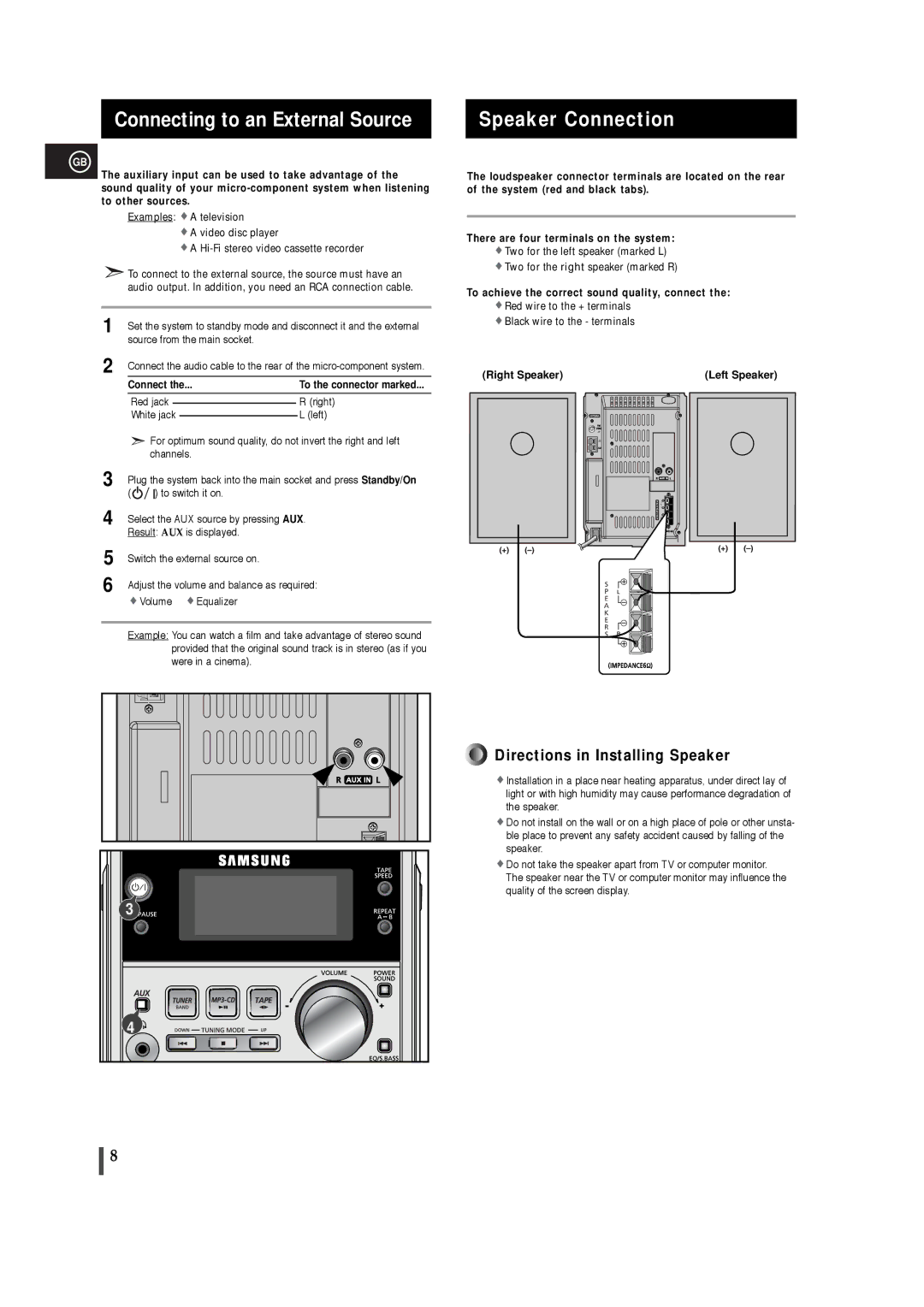
Connecting to an External Source
GB
The auxiliary input can be used to take advantage of the sound quality of your
Examples: ![]() A television
A television
![]() A video disc player
A video disc player
![]() A
A
![]() To connect to the external source, the source must have an audio output. In addition, you need an RCA connection cable.
To connect to the external source, the source must have an audio output. In addition, you need an RCA connection cable.
1 | Set the system to standby mode and disconnect it and the external | |||||||
| source from the main socket. | |||||||
2 | Connect the audio cable to the rear of the | |||||||
| Connect the... |
|
| To the connector marked... | ||||
|
|
|
|
|
|
|
| |
| Red jack |
|
|
|
| R (right) | ||
|
|
|
| |||||
| White jack |
|
|
| L (left) | |||
|
|
|
| |||||
|
| For optimum sound quality, do not invert the right and left | ||||||
|
| channels. |
|
|
| |||
3 | Plug the system back into the main socket and press Standby/On | |||||||
4 | ( |
| ) to switch it on. | |||||
Select the AUX source by pressing AUX. | ||||||||
| Result: AUX is displayed. | |||||||
5 | Switch the external source on. | |||||||
6 | Adjust the volume and balance as required: | |||||||
|
| Volume | Equalizer | |||||
Example: You can watch a film and take advantage of stereo sound provided that the original sound track is in stereo (as if you were in a cinema).
3 |
4 |
Speaker Connection
The loudspeaker connector terminals are located on the rear of the system (red and black tabs).
There are four terminals on the system:
![]() Two for the left speaker (marked L)
Two for the left speaker (marked L)
![]() Two for the right speaker (marked R)
Two for the right speaker (marked R)
To achieve the correct sound quality, connect the:
![]() Red wire to the + terminals
Red wire to the + terminals
![]() Black wire to the - terminals
Black wire to the - terminals
(Right Speaker) | (Left Speaker) |
![]()
![]()
![]()
![]()
![]()
![]()
![]()
![]()
![]()
![]() 4
4![]()
Directions in Installing Speaker
![]() Installation in a place near heating apparatus, under direct lay of light or with high humidity may cause performance degradation of the speaker.
Installation in a place near heating apparatus, under direct lay of light or with high humidity may cause performance degradation of the speaker.
![]() Do not install on the wall or on a high place of pole or other unsta- ble place to prevent any safety accident caused by falling of the speaker.
Do not install on the wall or on a high place of pole or other unsta- ble place to prevent any safety accident caused by falling of the speaker.
![]() Do not take the speaker apart from TV or computer monitor. The speaker near the TV or computer monitor may influence the quality of the screen display.
Do not take the speaker apart from TV or computer monitor. The speaker near the TV or computer monitor may influence the quality of the screen display.
8
